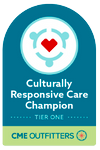What Is PTSD?
PTSD, or post-traumatic stress disorder, is a mental health condition that can affect individuals who have experienced or witnessed a traumatic event. These events can range from accidents and natural disasters to combat situations and acts of violence. People with PTSD may experience recurring and distressing memories, nightmares, flashbacks, and intense emotional reactions.
PTSD Symptoms: Recognizing the Signs
- Re-experiencing the Trauma: Frequent, intrusive thoughts about the event, nightmares, or flashbacks.
- Avoidance: Steering clear of places, activities, or thoughts reminiscent of the trauma.
- Changes in Arousal and Reactivity: Being easily startled, feeling “on edge,” or showing aggressive behavior.
- Negative Alterations in Mood: Feelings of detachment, guilt, or a numbing of emotions.
What Causes PTSD?
Understanding what can cause or trigger PTSD is like piecing together a complex puzzle. Traumatic events, such as accidents, assaults, natural disasters, or combat experiences, can be the catalyst. However, not everyone who experiences such events develops PTSD. It’s a mix of predisposing factors, such as genetics and personality, and triggering factors like the intensity and duration of the trauma.
These traumatic experiences are:
- Combat exposure
- Physical or sexual assault
- Accidents
- Natural disasters
- Witnessing violent acts
How to Treat PTSD
Effective treatments for PTSD involve addressing the root causes of trauma and providing coping mechanisms to manage symptoms. Various therapies and approaches can help individuals reclaim their lives and regain a sense of well-being.
Trauma-Focused Therapy
Trauma-focused therapies, such as Cognitive Behavioral Therapy (CBT) and Eye Movement Desensitization and Reprocessing (EMDR), help individuals process and reframe traumatic memories. These therapies can empower individuals to manage triggers and reduce distressing symptoms.
Medication
Medications, such as selective serotonin reuptake inhibitors (SSRIs) e.g. sertraline, can help manage the emotional symptoms of PTSD, such as anxiety and depression. These medications work by balancing neurotransmitters in the brain.
Please note that these types of medication must be used under a professional psychiatrist’s supervision.

TMS Therapy for PTSD
Transcranial Magnetic Stimulation (TMS) is an innovative therapy that uses magnetic pulses to stimulate specific areas of the brain associated with mood regulation. TMS has shown promising results in treating various mental health conditions, including PTSD. By targeting the brain’s neural pathways, TMS can alleviate symptoms and enhance emotional well-being.
Ketamine Treatment for PTSD
Ketamine, traditionally used as an anesthetic, has gained traction as a rapid-acting treatment for PTSD. Ketamine infusion therapy can help reset neural pathways and alleviate symptoms of depression and anxiety associated with PTSD. It offers hope to individuals who have not responded to traditional treatments.
Online PTSD Treatment
In the digital age, online therapy platforms have emerged as accessible options for PTSD treatment. Our platforms offer a range of therapeutic modalities, including virtual counseling sessions, support groups, and self-paced programs. Our online therapy provides flexibility and convenience, enabling individuals to access treatment from the comfort of their homes.

PTSD Treatment in and near California and Nevada
For those seeking in-person treatment options, Bespoke Treatment offers psychiatry services in and near these areas: Los Angeles and Santa Monica in CA, and Las Vegas NV. Our professional psychiatrists help you overcome PTSD with trauma-focused therapies and a wide range of treatments suitable for your unique needs.
Understanding CPTSD for Residents in California and Nevada
Complex post-traumatic stress disorder (CPTSD) is a condition that can develop when individuals are exposed to prolonged and severe traumatic experiences.
Unlike traditional PTSD, which typically stems from a single traumatic incident, CPTSD is more closely associated with chronic trauma, such as ongoing childhood abuse, domestic violence, human trafficking, or extended periods of captivity. The prolonged nature of these experiences can lead to a distinct set of symptoms that go beyond those of PTSD.
(833) 646-0763
Release the Past: Embrace Healing from PTSD
For personalized PTSD treatment options in Los Angeles, Las Vegas, and Santa Monica, visit Bespoke Treatment to begin healing with the help of our mental health professional.
Get StartedNavigating PTSD Treatment in California and Nevada: A New Season towards A better future
PTSD might be an invisible scar, but with understanding and the right treatment, especially with Bespoke tailored PTSD treatment options the path to healing and rediscovery becomes clearer. By harnessing therapies like TMS and Ketamine treatment, there’s a promise of a brighter, trauma-free tomorrow. Whether seeking local treatment in Santa Monica, Los Angeles, or Las Vegas or exploring online alternatives, taking the first step toward healing is a testament to resilience and strength. Contact us now for a better and happier lifestyle.
















